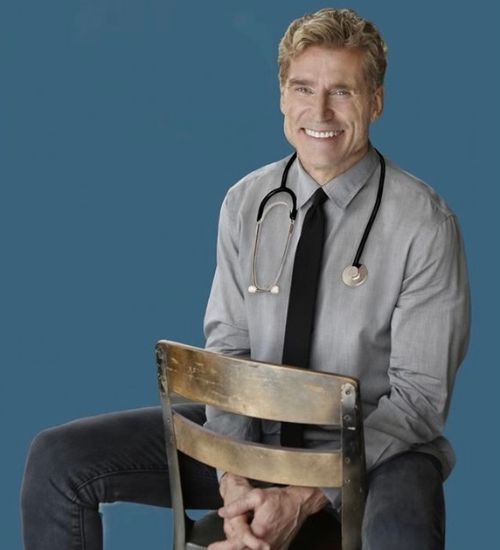Age Reversal: Science Fiction or Factual Science?
Bette Davis famously said, “Getting old ain’t for sissies!”

No wonder! Old age is the number one risk factor for the killer foursome: heart disease, solid cancers, strokes and Alzheimer’s in addition to diabetes, arthritis, muscle loss, macular degeneration and kidney failure.
Understandably, I like countless of others interested in optimal health, were mesmerized by “too-good-to-be-true” studies starting ten years ago where elderly mice (the equivalent of 60-year-olds in human years) were “reprogrammed” with an over-the-counter (OTC) supplement to have the cellular age and function of youthful mice. Honestly, on the surface, these results defied most everything I’d been taught in my medical career.
But what if everything we’ve been taught about aging is incorrect?
What if aging is a disease – an understandable cellular process with predictable pathologic (bad) outcomes? What if all the above expected old age diseases – plus just plain old-age-slowing-down – can be simultaneously prevented or even reversed by treating aging?
In truth, the way medicine works now leaves a lot to be desired. We wait for cancer to come then try to treat it. Sadly, even if tomorrow we found the cure for all cancers, our life span would only increase by 3 years, to 81. Why? Because old age diseases come together. If your cancer is cured, one of the other old age diseases will likely soon strike.
75 years ago, one way to lengthen lifespan and simultaneously prevent old age diseases was discovered by -– caloric restriction. Feeding an animal from childhood on about 30% less food than it naturally takes in, results in massively increased life spans (30-50%) and the delay of all the above diseases of old age. If this translates to humans – and why not, it’s true in primates – our average lifespan would increase from 78 to 120 years of life! Unfortunately, few humans can consistently lower their caloric intake by 30% – and no one would remotely consider starting their children on this austere diet.
Fortunately, researchers stumbled on a different life-extension approach, at a time when standard dogma said: “aging is amazingly complicated, no single simple intervention will ever be found to slow aging!” In the 1990’s, two unique genes: one in roundworms and one in yeast, were discovered that completely changed our thinking. Each gene produced a protein that could be manipulated to increase lifespan by over 50%!
Subsequently, it was discovered that these genes make proteins involved in ancient cellular survival circuits. Similar survival circuits were found in yeast, roundworms, mice, monkeys, and every one of the 200 unique types of human cells! That kind of conservation through billions of years of evolution speaks to the essential function of these cellular “sensors,” which respond like a well-conducted symphony to both good times and bad. Bad times (i.e., low protein levels, low energy stores, DNA damage, exhaustion post-exercise, cold) sets in motion cellular machinery to repair and protect the cell. Good times (rest, comfortable temperature, plenty of protein, calories, and stored energy) tells the cell to grow and divide.
Aging is accelerated in ‘good times’ and slowed in ‘tough’ times when the cellular apparatus favors regenerative DNA repair and protein recycling so the organism can hunker down and survive till better times. When properly tweaked, these inside-the-cell-sensors allow researchers to speed up, slow down, or even reverse aging at will. Some simple interventions (i.e. the addition of single medications) to these survival circuits in animals show up to 30% life prolongation – even when started late in life – a scientific feat unthinkable just a decade ago.
Wouldn’t it be great to trick the body into thinking times are ‘bad’, even though we’re sitting watching TV fully fed under a comfortable blanket? As luck would have it, there are four ways to favorably influence these survival circuits:
- Skip a meal most days (embrace hunger)
- Take a cold shower or a pre bedtime sauna (the post sauna drop in temperature may also help insomniacs)
- Regular exercise, including 15 minutes of vigorous activity (that will cause huffing and puffing)
- Consider supplements or medications that simulate ‘adversity’ (still experimental)
There is proof that US studies are now underway to see if we can lengthen human longevity and maximal human lifespan like we have reproducibly shown in animals – but this may take many years. Until then, skepticism is still warranted, but I am optimistic.
For more information on this exciting research and more ways you can turn back your body’s inner clock, join me, as I host a 60–to-90-minute state-of-the-art discussion at The Saban Theater in Beverly Hills on Wednesday, July 20th at 7pm. Each ticket includes a complimentary drink, and proceeds will benefit the verified GoFundMe accounts of the Uvalde, Texas elementary school tragedy.
Tickets are available for purchase at https://agereversal.brownpapertickets.com/
Dr. Robert Huizenga, also known as “Dr. H” for 17 seasons of The Biggest Loser, is a former team physician for the Los Angeles Raiders, former president of the NFL Physicians society and has a busy internal medical practice. He has been a regular contributor on multiple reality television shows, is the author of three books including one that was the basis for Oliver Stone’s film Any Given Sunday, and has performed research in circadian rhythm, sports medicine, metabolism (including being one of the first to document reversal of type 2 diabetes with his surgical-free, drug-free approach to morbid obesity), STDs, COVID-19 treatment and most recently age-reversal.
Huizenga grew up in Rochester, New York, where he was valedictorian and a three sport all-county athlete at Penfield High. At the University of Michigan, he was honored in mathematics and was an NCAA All-American wrestler. At Harvard Medical School, he majored in immunology and was an all-star rugby player. He was appointed Chief Medical Resident at Cedars Sinai Medical Center, after which he entered a pulmonary fellowship before leaving to serve as a team physician for the Los Angeles Raiders as well as to be the national medical correspondent for Breakaway (FOX) and later for The Home Show (ABC). He continues his role as a health expert appearing on CBS, NBC, ABC Evening News, Nightline, Larry King Live, Extra, E!, Access Hollywood, The Dr. Oz Show and The Today Show as well in the New York Times, Los Angeles Times, The Boston Globe and other national print media.












Leave a Reply